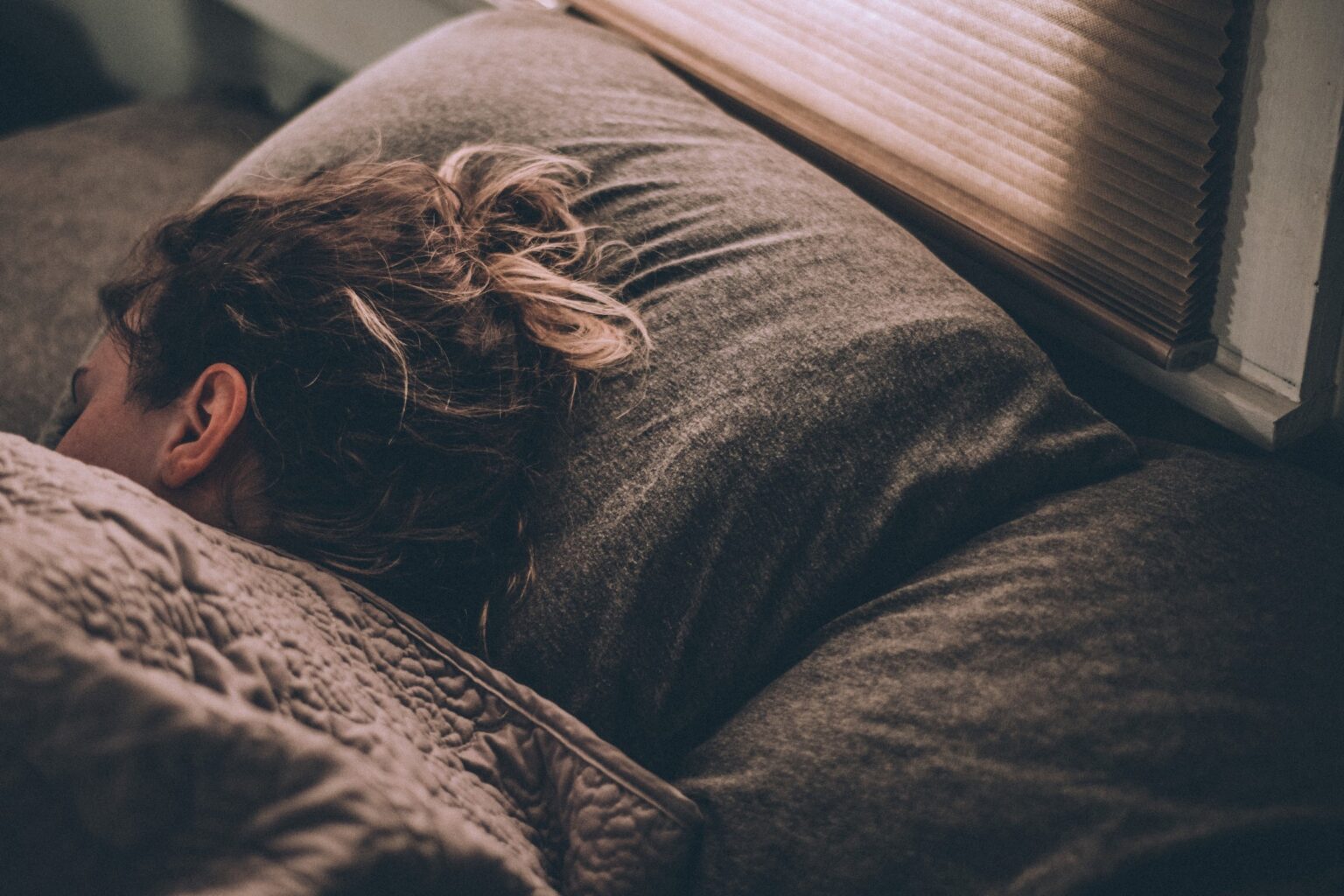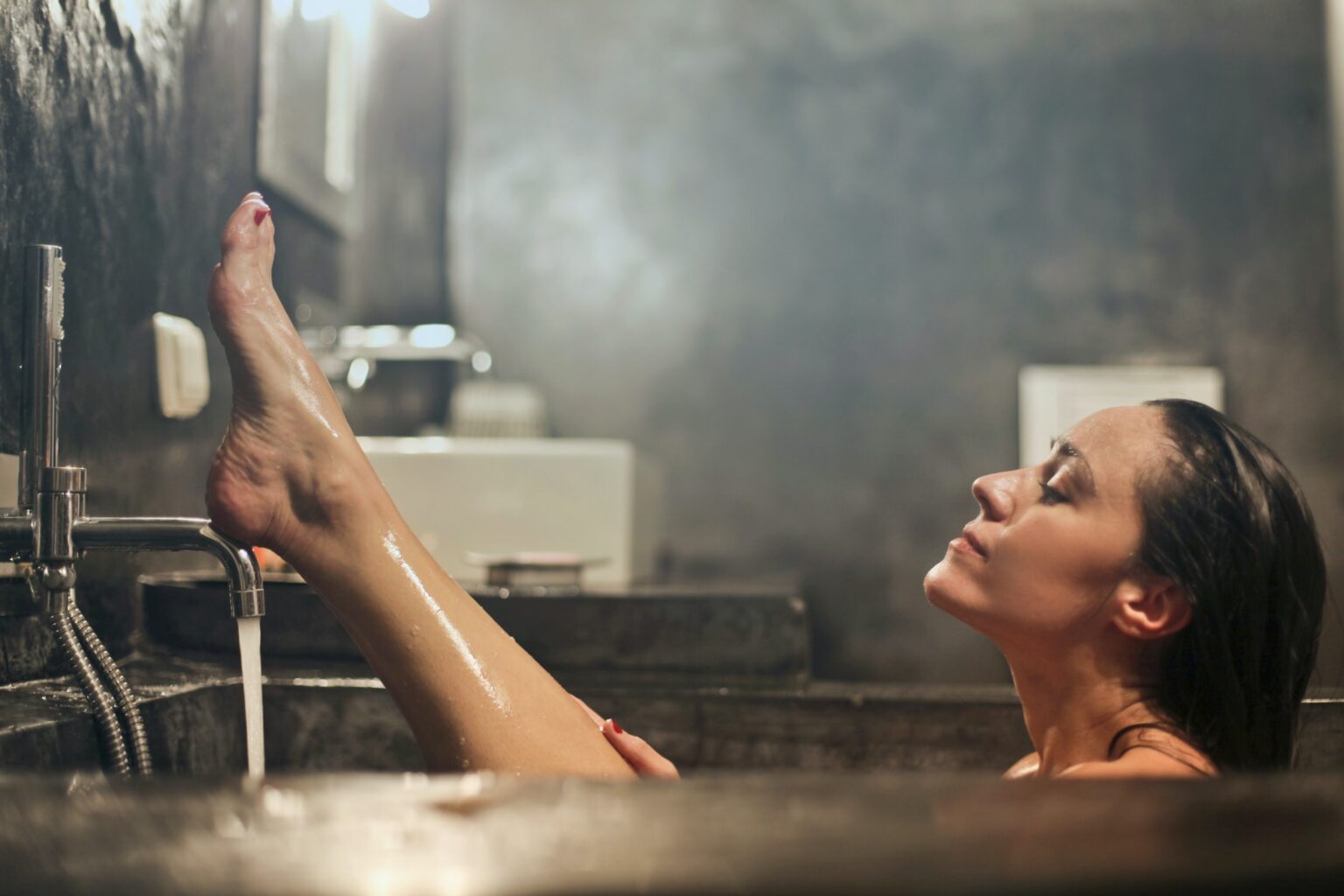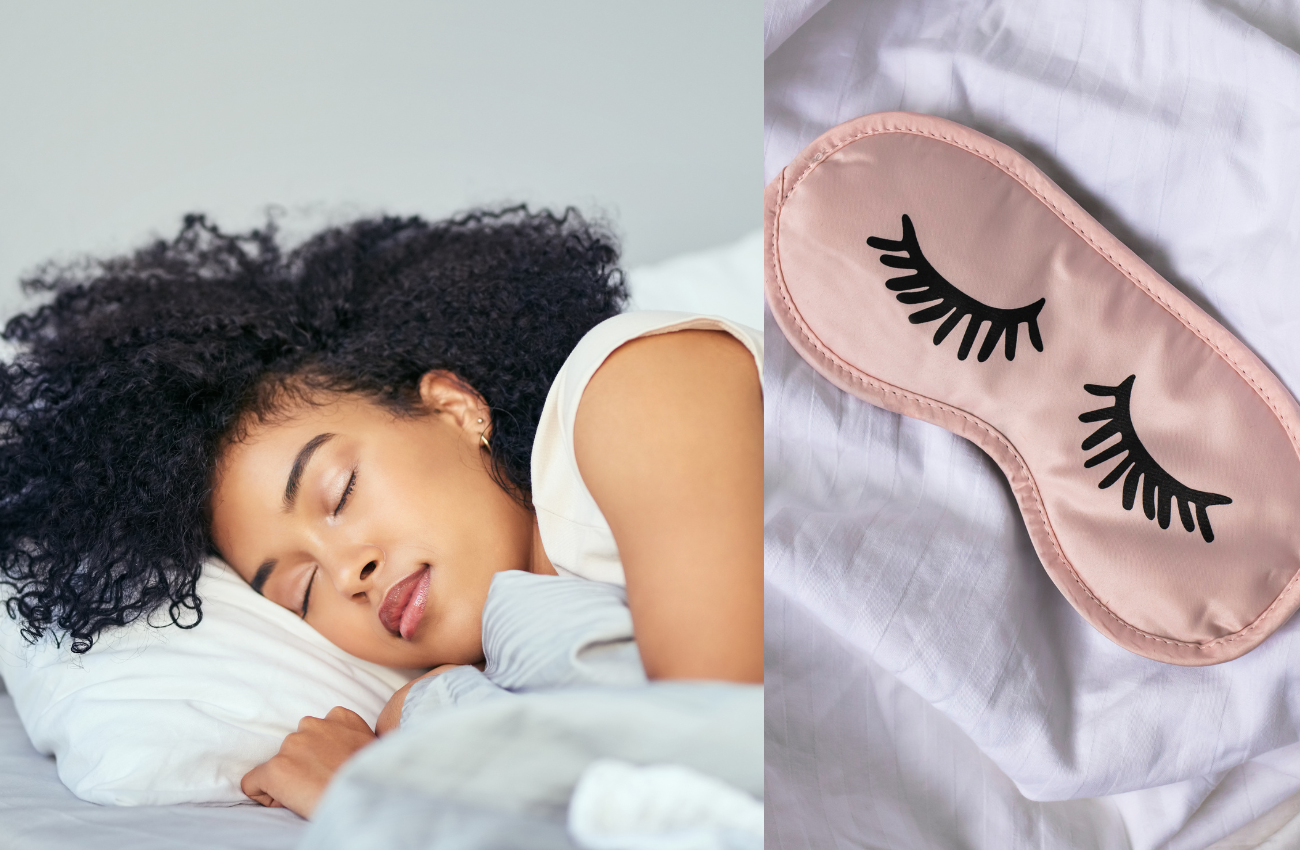It’s International Sleep Awareness Month in March, and with most women struggling to sleep at some point in their life, we spoke to Life Coach and NLP practitioner at Goldster, Anna Campkin about women’s sleep tips and advice to help you get the rest you need.
Women often juggle multiple responsibilities and priorities every day. It isn’t always easy to balance work, family, and personal commitments while getting a good night’s sleep. However, sleep is a crucial component of our overall health and well-being. To help you get a better night’s sleep and wake up feeling refreshed, we’re sharing some helpful sleep tips specifically for women in this article.
Women And Sleep
How many hours of sleep does a woman need?
“Women need between seven and nine hours of sleep a night. Incidentally, all adults need between 7-9 hours of sleep, though this differs from individual to individual as to exactly how much sleep they need. It is suggested that women ultimately need more sleep than their male counterparts. There are different schools of thought on how much extra sleep women need than men, some say 11 minutes, others suggest 11-13, whilst some say 20 minutes! Therefore overall, it is suggested that women need at least 11-20 minutes extra sleep than men.”
Why do females sleep so much?
“Hormonal changes can have a huge impact on our sleep and women experience more significant hormonal changes throughout their life than men. These can affect their circadian rhythms (our inner body clock linked to the sun and light exposure which either tells us when it is time to be awake and active; or when it is time to rest and relax). When circadian rhythms are disturbed this can cause sleep to be disrupted or not as rejuvenating, therefore this can cause women to need more overall sleep to counteract this and feel refreshed.
“Every month a woman will have their period; when their body temperature is raised between 0.3-0.7 degrees. This will interfere with sleep as we ideally need to be cooler to sleep and stay asleep so the fluctuation in temperature can cause women to wake or find it harder to sleep. Pain can also disrupt sleep so the cramps associated with menstruation can have a detrimental effect on the quality of sleep too.
“Similarly during pregnancy, women can find it harder to experience restful sleep. This is because they might experience more fatigue from the processes their body is undergoing. They might also find they wake more in the night needing to urinate more frequently as their bladder is under more pressure or due to restless leg syndrome, which can develop during pregnancy.”
Menopause and sleep
“During menopause, women can find that their sleep is interrupted again as they experience more fluctuations in temperature and have night sweats and hot flashes.
“Studies also show that in general women are more likely to be the caregivers in the home and therefore are most likely to be the ones getting up to attend to anyone else, which can again disrupt their sleep.
“Women also have less testosterone than men and testosterone is linked to energy, therefore less testosterone can mean women are more susceptible to fatigue and less energy in general. Women also use their brains in different ways to men, tending to multitask more often. As they use more of their brain in one go this can cause them to need more rest to reset afterwards.
“On top of all this, women are at 40% increased risk of sleep disorders than men. Including sleep apnea, insomnia as well as anxiety and depression. All of which can have adverse effects on sleep causing women to need more overall time asleep to make up for the fact their sleep might be less restorative than men’s sleep.
“The higher average for women sleeping more can also be because women are more likely to take naps than men. So this can increase the time asleep to make up for the fact it is less restorative sleep.”

What time should a woman go to bed?
As for what time women should go to bed, that will differ from individual to individual and their routines. I would suggest to notice how much sleep they feel they need to feel rejuvenated in the morning, then think about their schedule and the time they ideally want to get up. Then work backwards and go to bed allowing for that amount of time before they want to get up. For example if they feel they need 8 hours sleep and want to get up at 7 am, going to bed at 10:30-10:45 would be ideal. It can take us between 15-20 minutes to fall asleep and therefore this will allow for this “falling-asleep” time as well as giving the amount of sleep they would hope to get.
To get on track with their best sleep it is important they stick to this routine as closely as possible. Always going to bed and waking at the same times to have good sleep hygiene and maximise their chances of getting good sleep. If they are unsure of a good time to sleep going to bed between 10-11 is ideal as these times are most in sync with the circadian rhythm and the darkest part of the day. (Light exposure causes us to be more wakeful, so darker times are when we are most sleepy).
Why do females need more sleep than males?
“Women might need more time asleep than men, but they can maximise their potential for restorative sleep by allowing themselves more time to unwind in the evening, creating a relaxing bedtime routine and sticking to it and knowing if they want to go to bed 20 minutes earlier or have 20 minutes extra kip in the morning they are well entitled to it!!”
Women’s Sleep Tips
Stick to a consistent sleep schedule and create a night-time routine
Our bodies thrive on routine, so it’s important to go to bed and wake up at the same time every day, even on the weekends. This helps regulate our body’s internal clock, making it easier to fall asleep at night and wake up in the morning.
“When it comes to women’s sleep tips, a good nighttime routine is everything,” says Anna.
“This can be anything relaxing but aim for it to be the same every evening so that your body starts to get into a rhythm of knowing when you have your bath or hot cocoa that it’s nearly time for bed. It takes the stress out of having to make decisions in the evening and also helps to wind you down.”
“As part of your routine aim to go to bed and to rise at the same times every day. We are resetting our sleep hygiene when we do this and connecting to our body clock too.”
Make your bedroom a sleep-friendly environment
Your bedroom should be a comfortable and peaceful space that promotes relaxation and sleep. Consider investing in a comfortable mattress and pillows, blocking out light and noise with curtains or earplugs, and keeping the room at a cool temperature.
“Have a restful sleep environment. Keep the bedroom for sex and sleep where possible. If you need to work from this room, try and find a separate area, and not on the bed, we want to associate the bedroom with rest and sleep primarily.
“Make it easy to sleep, our circadian rhythm or internal clock is guided by the amount of light we get. So have a dark room for sleep, this can be created by blackout curtains, or by investing in an eye mask to block out the light.
“Similarly, we need a quiet space for sleeping, so investing in ear plugs, or even removing distractions can really help – if sleeping in shifts letting people know when you are available and when you are sleeping so as not to be interrupted.”
Practice stress-reducing techniques
Stress and anxiety can interfere with sleep, so it’s important to find ways to manage these emotions. This could include practising deep breathing exercises, journaling, or talking to a therapist or counsellor.
Limit caffeine and think about your diet before bed
Caffeine and alcohol can interfere with sleep quality and make it more difficult to fall asleep. Try to avoid consuming these substances in the hours leading up to bedtime, and limit your overall intake throughout the day.
Anna says: “Limit caffeine intake in the afternoon. Be mindful that caffeine will stay in your system for five hours, so a drink you have at 2pm will still be in your system at 7pm. Decaffeinated options might be a wise alternative for later in the day.
“Additionally, be mindful of the foods you are eating before bed. Too much in quantity or spice and you might find indigestion or sugar peaks and dips keep you awake; too little and you might be waking up needing a snack. Eating foods such as cherries, oats, pistachios, salmon, almonds and strawberries are all high in melatonin, which is our sleep hormone and really helps promote sleep for us.”
Limit screen-time before bed
“Keep away from your screens at night – the blue light can interrupt our melatonin production and confuse our brains thinking it isn’t actually bedtime – so avoid late-night scrolling. Set a time to be off of your phone and make this at least 30 minutes before you want to sleep.”

Wind down with a relaxing bedtime routine
A relaxing bedtime routine can help signal to your body that it’s time to wind down and prepare for sleep. This could include taking a warm bath or shower, reading a book, practicing yoga or meditation, or listening to calming music. Try to avoid stimulating activities like scrolling through social media or watching TV right before bed.
“Have a bath or a hot shower. Not only does the hot water soothe tension in our muscles; when we dry off and the water evaporates off our body, our body temperature drops, mimicking the natural drop in temperature we experience before we sleep – thus making us sleepy!”
Get regular exercise to help you sleep
Regular exercise can help improve sleep quality and promote relaxation. Aim for at least 30 minutes of physical activity most days of the week, but try to finish your workout at least a few hours before bedtime to give your body time to wind down.
“It might sound counterproductive but being aware of our exercise can help our sleep. Have high energy, vigorous exercise in the morning to get you going, wake yourself up and kick start your metabolism and then calmer movement in the afternoon. Ideally don’t exercise in the 2-3 hours before bed as this will impact on you to being able to fall asleep.”
Consider natural sleep aids
If you’re having trouble falling asleep, consider trying natural sleep aids like valerian root, chamomile tea, or lavender essential oil. However, be sure to talk to your doctor before trying any new supplements or remedies.
Anna suggests actually getting out of bed. “If you can’t sleep, get out of bed! It may sound mad, but if you are clock-watching and not sleeping in bed, you start to associate bed with anxiety and unrest. If you notice you are awake for more than 30 minutes get up, go sit somewhere else and read, or have a hot milky drink and then come back and try again in a bit. This will get you out of the habit of associating being in bed with not being able to sleep.”
By prioritising sleep and implementing these tips into your routine, you can improve the quality of your sleep and wake up feeling rested and refreshed. Remember that it may take time to establish a new sleep routine, so be patient and consistent in your efforts. Sweet dreams!





